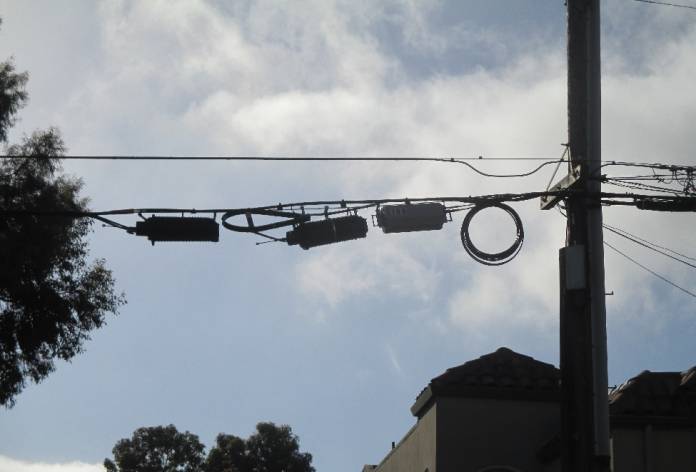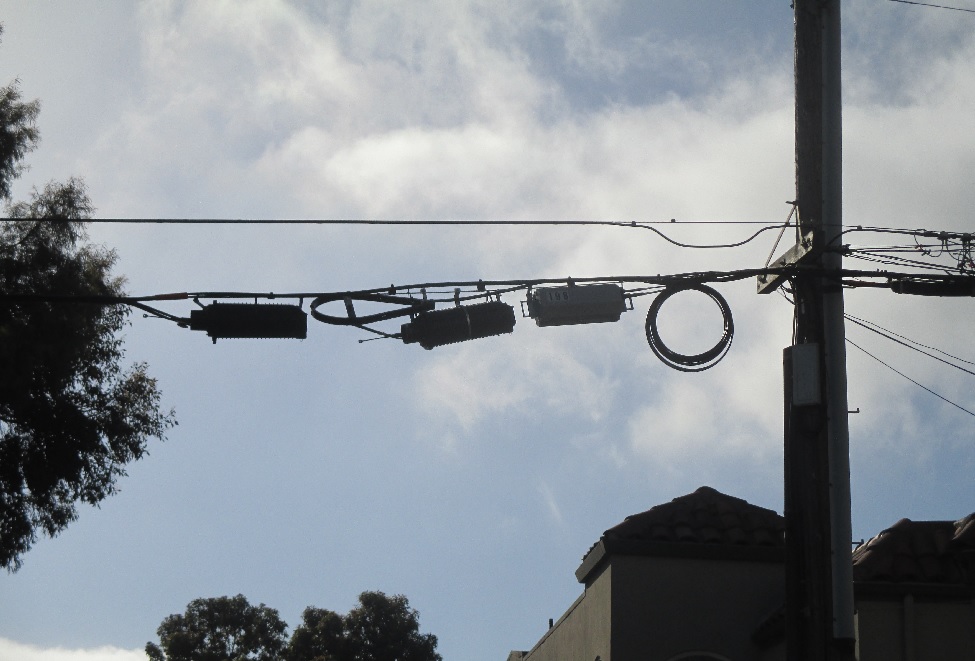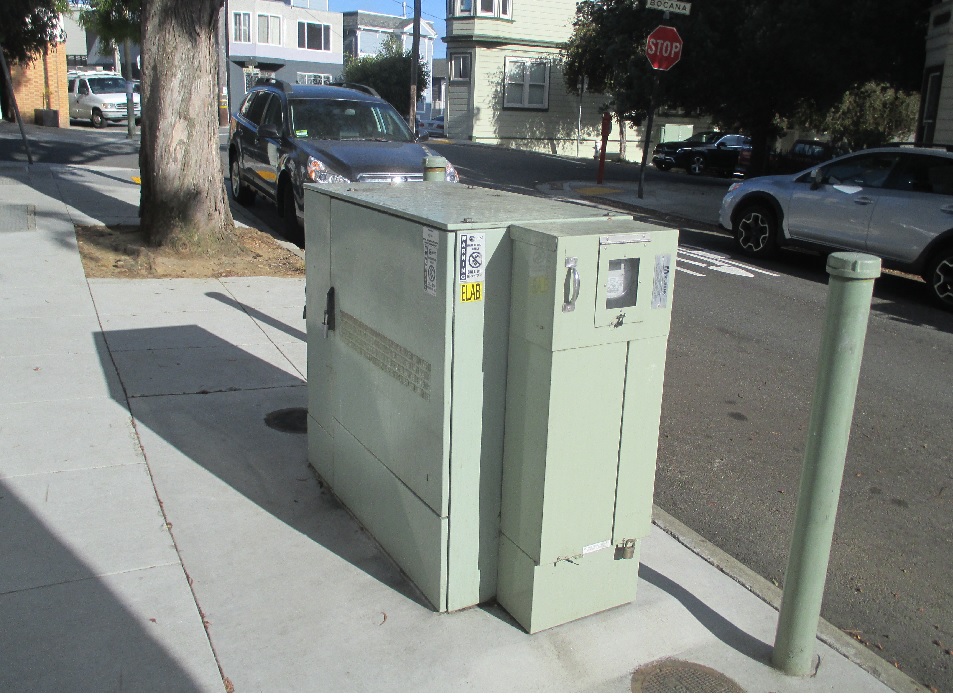
The state Senate has a had a bumper-crop year for bills to help developers, landlords, and corporate interests – and to undermine the ability of local government to negotiate with and regulate big business.
And even when cities (including the SF Board of Supes), counties, and big-city newspapers (including the Chron, the LA Times, and the Sacramento Bee) say a bill is bad, it can still soar through – if it’s backed by the likes of AT&T and the cell-phone industry.

Witness SB 649, which would essentially take away local control over cell-phone boxes on the streets and public rights-of-way. It rolled out of the Senate with almost no opposition, and is coming before its final Assembly committee, Communications and Conveyance, Wednesday/12.
The phone companies want it so they can quickly roll out the next level of 5-G service, without any interruptions or delays. That means new boxes strapped to utility poles, which are owned by the city.
It’s not as if San Francisco is harsh on these companies – they all get approval for almost every cell tower they want. (People who say these things are unsafe are generally dismissed as fringe characters, and the American Cancer Society says there’s nothing to worry about. I am not an expert on cell-phone radiation, but Scientific American says it’s not a joke. Former State Sen. Mark Leno has long urged more safety warnings.)
But let’s go a step beyond this long-term safety debate (which clearly needs to happen). Cities own the streets, and the phone poles, and have long established rights to control what happens on public property. When Comcast runs a cable beneath city streets to make a profit selling private service, the city gets not only to regulate but to charge a fee.
We charge PG&E a fee to run its private business using poles and wires on city streets (and pipes beneath them).
We don’t just let AT&T put big bulky boxes anywhere it wants on our sidewalks without permission, public hearings, and fee payment.
Help us save local journalism!
Every tax-deductible donation helps us grow to cover the issues that mean the most to our community. Become a 48 Hills Hero and support the only daily progressive news source in the Bay Area.

We don’t just let cell phone provider strap whatever gear they want to our city-owned light polls or traffic-signal poles.
That’s what the state wants to take away.
Again, it makes no sense: It’s not as if San Francisco, or any other big city, is placing horrible onerous requirements on the companies. Just walk around town; this stuff is everywhere.
It’s not the radical left opposing this: Sup. Mark Farrell and the PUC General Manager, Harlan Kelley, have written an oped arguing against the measure. The supes have passed a resolution against it. The League of Cities is working to defeat it.
Because, frankly, there are millions of dollars at stake – money that AT&T, Verizon, Sprint and the others don’t want to pay.
Senator Scott Wiener voted in favor of the measure on the Senate floor. His office hasn’t yet responded to my request for comment.
UPDATE: I got this message from Wiener:
I didn’t like the bill as initially proposed and was faced with two options: either cast a symbolic and ineffective protest vote against it or, alternatively, work to obtain amendments to make the bill better for cities. I chose the latter path, and working with other Senators, I asked for and obtained a number of amendments to improve the bill. Once my amendments were accepted, I voted for the bill.
The amendments I was successful in obtaining include two important changes: (1) giving cities the explicit power to set binding design and placement standards for this equipment and (2) allowing cities to reserve space on poles for public utilities and other uses. Other colleagues negotiated additional positive changes, and the bill, as amended, was much less problematic than when it started.
I can tell you that AT&T is one of the most powerful players in Sacramento. Every year, the company hosts “the Speaker’s Cup,” a golf tournament where lobbyists get to hang out with legislators (for $35,000 or so a pop).
If the Democrats can’t even slow this kind of juggernaut down, it’s no wonder they can’t stand up to the landlords.
